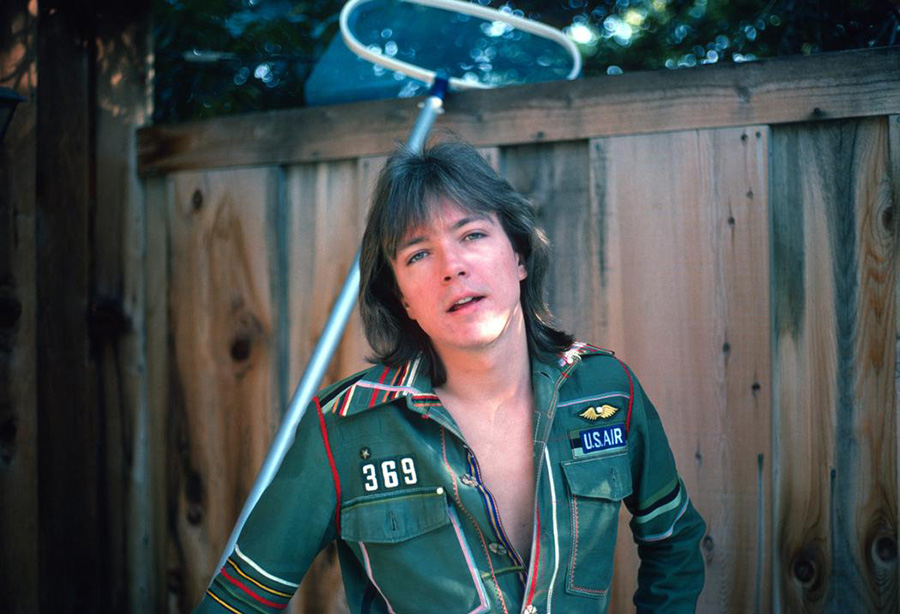
“I Just Wanna Make You Happy” is a small, earnest vow—love not as conquest, but as the steady wish to ease another person’s life, even when you can’t fix everything.
There’s a particular tenderness in David Cassidy’s early solo work when he stops reaching for drama and simply tells the truth in plain words. “I Just Wanna Make You Happy” is one of those moments: gentle, direct, and quietly disarming. It doesn’t sound like a song written to win an argument or to rescue a failing romance. It sounds like a man choosing a softer kind of courage—the kind that says, I may not have all the answers, but I’m here, and I want your days to feel lighter.
The first important detail is where this song lives in his catalog. “I Just Wanna Make You Happy” appears on David Cassidy’s debut solo album Cherish, released in early 1972 on Bell Records. On that record, it arrives immediately—track 2, right after the opener—like a second sentence that clarifies the tone of the whole album: intimate rather than flashy, personal rather than performative. Even the running time reinforces its modesty. At roughly two minutes and change, it doesn’t linger to make a grand speech. It says what it needs to say, then steps back, trusting the listener to fill the silence with their own memories.
And Cherish mattered when it arrived. The album reached No. 15 on the Billboard 200 in the United States, and in the UK it climbed even higher, peaking at No. 2 (with its UK chart run beginning in May 1972). Those numbers aren’t just trivia—they’re part of the story. They tell you that a huge audience was ready to meet Cassidy outside the television frame, to hear him in a more human key. In that sense, “I Just Wanna Make You Happy” functions almost like a handshake: not the loudest song, but the one that says, This is who I am when the noise fades.
The songwriting credit sharpens the picture, too. “I Just Wanna Make You Happy” was written by Wes Farrell and Bobby Hart. Farrell also produced Cherish, shaping its warm, radio-ready sound while leaving enough room for Cassidy to feel sincere rather than manufactured. Hart—already proven as a writer with a keen sense of melody—helps give the song its simple, memorable spine. The craftsmanship is there, but it’s deliberately unobtrusive. You don’t hear “clever.” You hear “true.”
What does the song mean, emotionally? It’s about love as intention rather than certainty. The narrator doesn’t promise the impossible. He doesn’t claim he can erase pain or guarantee forever. He offers something smaller and more believable: effort, attention, a willingness to show up. That’s why the title line lands the way it does. “I Just Wanna Make You Happy” isn’t a boast. It’s a confession of priorities—an admission that, beneath pride and posturing, what he wants most is to be a source of comfort.
Cassidy’s performance supports that meaning beautifully. His voice—often remembered for its bright, youthful sheen—becomes here a softer instrument. He sings with restraint, not pushing the emotion past the point of honesty. There’s a calmness in his delivery that suggests maturity beyond the era’s teen-idol expectations. He doesn’t beg; he reassures. He doesn’t demand; he offers. The result is intimacy without melodrama—like someone speaking to you from the next room, not from a stage.
What makes songs like this last is their usefulness. Years pass, and the grand declarations that once felt thrilling can start to feel less believable. But a song built on a simple wish—to make someone happy, to be gentle with their heart—keeps its meaning. It becomes a companion for quieter evenings, for those moments when love isn’t a fireworks display but a choice made in ordinary minutes: a call returned, a shoulder offered, a small kindness that says more than any speech.
So if earlier information made the track sound like a charting single or placed it on the wrong album, the clearer truth is this: “I Just Wanna Make You Happy” is an album jewel from Cherish—a brief, sincere piece written by Wes Farrell and Bobby Hart, carried by David Cassidy with the kind of gentle conviction that doesn’t need to shout. It’s not the sound of love trying to impress. It’s the sound of love trying to be good.